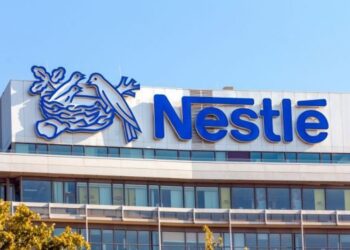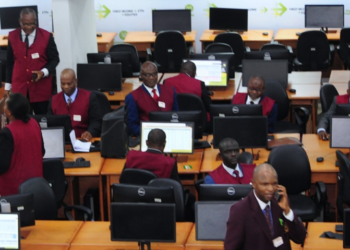With about six decades of being the choice companion for families within Nigeria and the diaspora, Nestlé Nigeria Plc has positioned itself as one of the largest food and beverage companies on the continent. Owing to the expansive growth of Nigeria’s population – one projected to reach 300 million by the year 2030, as well as the growing middle class, the FMCG sector has a very positive outlook.
Consequently, Nestle’s leadership in the industry and its huge market size expectedly gives it a huge advantage. However, with the global economy barely racing against the impact of the Covid-19 pandemic, even the brimming FMCG sector will experience its own level of disruption.
Nestle’s recently released Q1 2020 financials reveal a revenue decline of 0.9%, as it dropped to a marginal ₦70.33 billion from the ₦70.97 billion turnover it garnered in Q1 2019. The profit before tax also experienced an 8.7% drop while the profit after tax had a 12.84% drop, both yielding ₦17.5 billion and ₦11.2 billion respectively, for the first quarter of this year. This is predominantly owing to its increased losses from its overseas activities.
READ ALSO: Italy to invest in Nigeria’s agric sector
The company procures all of its raw materials on a commercial basis from overseas and local suppliers; consequently, the percentage of its supplies dependent on international suppliers had a negative impact on its Q1 2020 financials. Its profits were plagued by a foreign exchange loss of ₦154.7 million from ₦18.9 million, an even higher loss of 720.6%. While the company did not disclose the value of its export revenue, we believe it too might have suffered from reduced exportation in the latter part of the quarter.
The group has since been taking on expansionary projects, such as its launch of a second beverage production plant in Ogun State in February of 2018. The company, on a continuous basis, explores the use of local raw materials in its production processes, contributing its own quota to the Nigerian economy.
READ MORE: Polaris Bank’s profit rises to N26.2 billion from N2.8 billion
Just last week, Nestlé’s stocks went up 2.56% to close at ₦1000, a price it still currently holds today after markets closed. Its price to earnings ratio is 18 and its earnings per share (EPS) of 55.54, signal an investor sentiment of confidence. However, its high price to book ratio of 13.9865 reveals that the company is slightly overvalued and its price of ₦1000 makes it attractive primarily to institutional investors that can afford to purchase large volumes of the stock enough to benefit from its steady growth in value. The company had proposed a dividend payout of ₦45 per share. This also comes after paying ₦25 per share interim dividends earlier. Its dividend yield at the time of writing this is 7%, further heightening the possibilities for the income investor.
While the company has strong fundamentals governed predominantly by its position as a market leader, its years of experience, and its existence in the FMCG sector, it too might not have a smooth sail in the coming quarter. Its overseas business from both the supply and the demand sides are expected to experience a further decline, ultimately resulting in an even lower relative turnover and lower earnings.
READ MORE: Cadbury Nigeria reports N638.9 million profit for Q1 2020
We also expect the decline in average disposable income of Nigerians from loss of jobs and an overall wariness of the economic impact of the pandemic, to further drive down turnover; however, sound operational efficiencies and cost control/ profit strategies by the group could ease the burden. The company fundamentals remain strong but its exposure to consumer disposable income remains a major concern. There is always a cheaper alternative and when your pocket empties your choice for cheaper substitutes swells.


















